Carbon dioxide cold traps on the moon are confirmed for the first time
Monday, 15 November 2021 19:47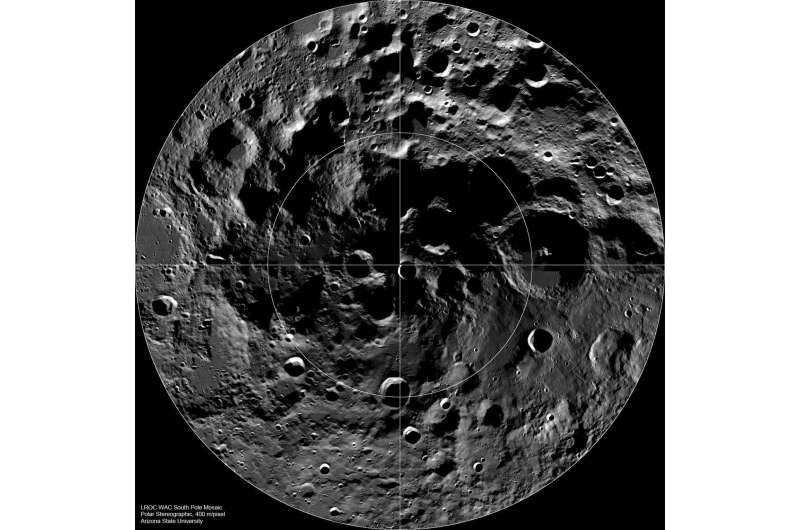
After decades of uncertainty, researchers have confirmed the existence of lunar carbon dioxide cold traps that could potentially contain solid carbon dioxide. The discovery will likely have a major influence in shaping future lunar missions and could impact the feasibility of a sustained robot or human presence on the moon.
Utah State University’s Space Dynamics Laboratory wins $1 billion contract from AFRL
Monday, 15 November 2021 18:56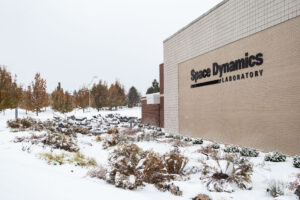
The Air Force Research Laboratory awarded Utah State University’s Space Dynamics Laboratory a $1 billion five-year contract for “space and nuclear advanced prototypes, experiments and technology."
Russia destroys satellite in ASAT test
Monday, 15 November 2021 18:50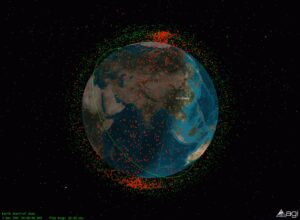
A Russian satellite broke up in low Earth orbit in a deliberate test of a Russian anti-satellite device that created thousands of pieces of debris.
Space debris 'event' forces ISS crew to take evasive action (Update)
Monday, 15 November 2021 17:01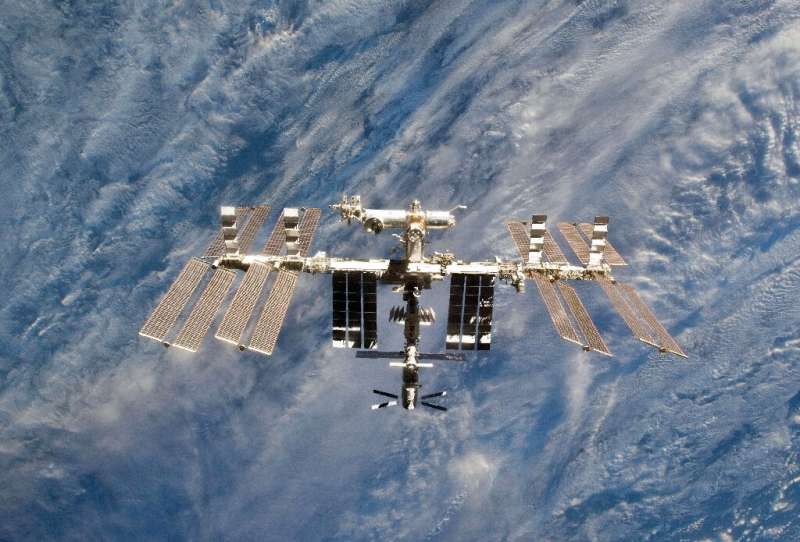
The United States said Monday it was investigating a "debris-generating event in outer space" after astronauts on the International Space Station were forced to prepare for a possible evacuation.
The incident came amid unconfirmed reports that Russia had carried out an anti-satellite weapon (ASAT) test—rare show-of-force demonstrations criticized by the space community because of the risk they create for crews in low Earth orbit.
"US Space Command is aware of a debris-generating event in outer space. We are actively working to characterize the debris field and will continue to ensure all space-faring nations have the information necessary to maneuver satellites if impacted," the military branch said.
"We are also in the process of working with... the State Department and NASA, concerning these reports and will provide an update in the near future.
Sure there’s hype, but blockchain has concrete space applications
Monday, 15 November 2021 15:30
Blockchain's promise of direct, secure transactions between individuals or organizations promises to revolutionize space commerce.
Sure, there’s hype. But blockchain has concrete space applications
Monday, 15 November 2021 15:30
Blockchain's promise of direct, secure transactions between individuals or organizations promises to revolutionize space commerce.
Children of the world join Europe’s mission to Jupiter
Monday, 15 November 2021 15:05
Children of the world join Europe’s mission to Jupiter
We received astounding works of art from kids in 63 countries who put their personal touch on Europe’s mission to the largest planet in our Solar System, the Jupiter Icy Moons Explorer (JUICE).
Not saying it was aliens, but 'Oumuamua probably wasn't a nitrogen iceberg
Monday, 15 November 2021 14:20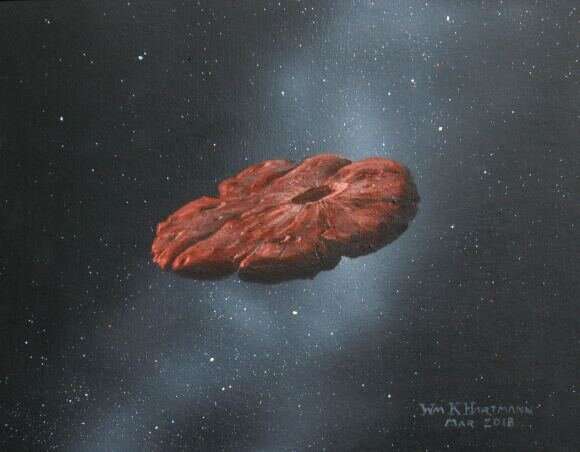
On October 19, 2017, astronomers made the first-ever detection of an interstellar object (ISO) passing through our solar system. Designated 1I/2017 U1 ′Oumuamua, this object confounded astronomers who could not determine if it was an interstellar comet or an asteroid. After four years and many theories (including the controversial "ET solar sail" hypothesis), the astronomical community appeared to land on an explanation that satisfied all the observations.
The "nitrogen iceberg" theory stated that "Oumuamua was likely debris from a Pluto-like planet in another stellar system. In their latest study, titled "The Mass Budget Necessary to Explain "Oumuamua as a Nitrogen Iceberg," Amir Siraj and Prof. Avi Loeb (who proposed the ET solar sail hypothesis) offered an official counter-argument to this theory. According to their new paper, there is an extreme shortage of exo-Plutos in the galaxy to explain the detection of a nitrogen iceberg.
In the paper where he broached the possibility, Loeb indicated that "Oumuamua's unusual character and behavior were consistent with a solar sail.
DoD eager to leverage LEO broadband constellations
Monday, 15 November 2021 14:00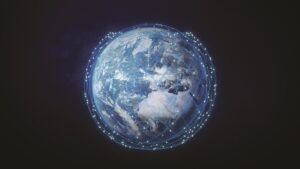
The military is hungry for low-latency broadband services from the likes of OneWeb, SpaceX, Telesat and Amazon that promise to connect the world via thousands of satellites in low Earth orbit.
Japan to launch 2nd space defense unit to protect satellites from electromagnetic attack
Monday, 15 November 2021 13:45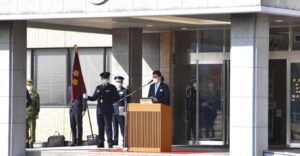
Japan will stand up a second space defense unit within the next 18 months to monitor electromagnetic wave threats to its satellites.
Intelsat and OneWeb demonstrate integrated GEO and LEO broadband service
Monday, 15 November 2021 13:30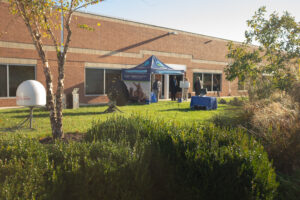
In a demonstration earlier this month, Intelsat and OneWeb provided broadband internet service to U.S. Army users via satellites in low Earth orbit and in geostationary orbit.
ESA’s Biomass on track to target forests
Monday, 15 November 2021 13:20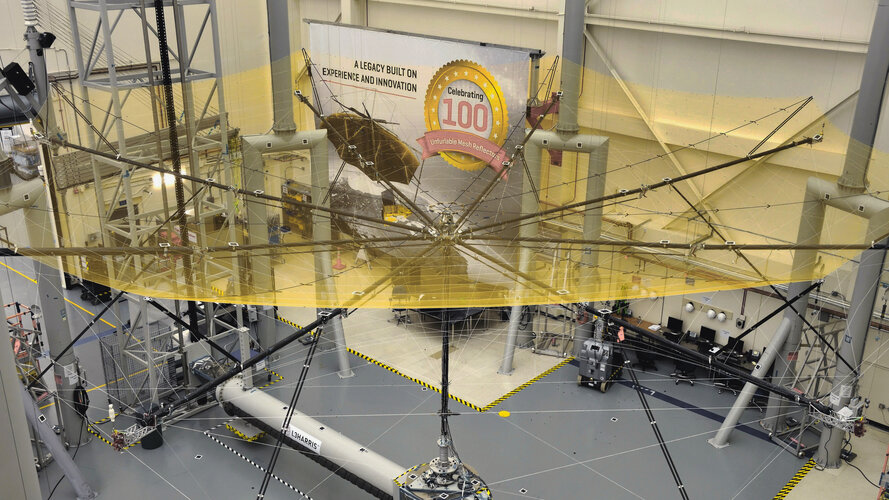
With more than 100 global leaders at COP26 having pledged to halt and reverse deforestation and land degradation by the end of the decade to help address the climate crisis, the health of the world’s forests is high on the political agenda. ESA’s Biomass mission will soon play a key role in delivering novel information about the of the state of our forests, how they are changing over time, and advance our knowledge of the carbon cycle. With launch scheduled for 2023, the mission is now in its last phases of development, having recently passed several key milestones.
Space Force satellite jammers shut down enemy communications, temporarily
Monday, 15 November 2021 12:00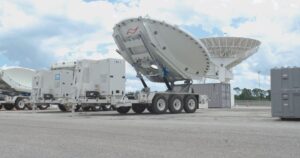
The U.S. Space Force will deploy an advanced electronic jammer to disrupt enemies’ satellite communications signals.
Space Force satellite jammers would shut down enemy communications temporarily
Monday, 15 November 2021 12:00
The U.S. Space Force will deploy an advanced electronic jammer to disrupt enemies’ satellite communications signals.
ESA uses space to supercharge climate action
Monday, 15 November 2021 10:43
ESA is primed to play a crucial role in the revitalised international drive to combat global warming set out at the COP26 climate talks.

